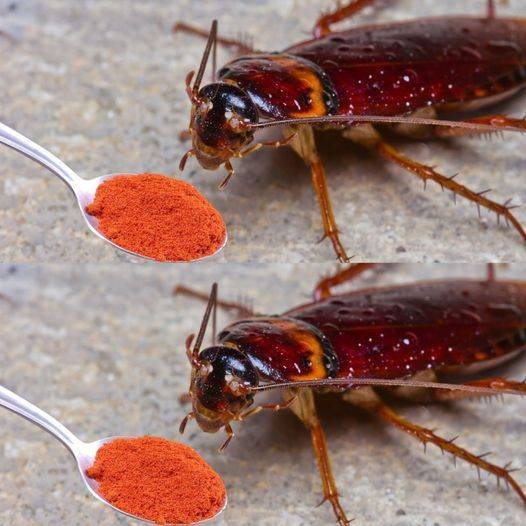
1. General Prevention Tips
- Maintain Cleanliness: Keep your home clean by regularly vacuuming, sweeping, and wiping surfaces to remove crumbs and spills.
- Seal Entry Points: Close gaps and cracks in walls, windows, and doors to prevent pests from entering.
- Proper Food Storage: Store food in airtight containers and keep fruit and vegetables in the refrigerator or in sealed containers.
2. Organic Solutions for Common Pests
Ants
- Vinegar Solution: Mix equal parts water and white vinegar in a spray bottle and apply to ant trails and entry points.
- Diatomaceous Earth: Sprinkle food-grade diatomaceous earth around entry points. It dehydrates ants and other insects.
Cockroaches
- Boric Acid: Create a mixture of boric acid and sugar (1:1 ratio) and place it in areas where cockroaches are active. Boric acid is toxic to cockroaches but safe for humans and pets in small amounts.
- Essential Oils: Cockroaches dislike the smell of essential oils like peppermint or eucalyptus. Mix a few drops with water and spray in infested areas.
Fruit Flies
- Apple Cider Vinegar Trap: Pour apple cider vinegar into a bowl and add a few drops of dish soap. Cover the bowl with plastic wrap and poke small holes in it. The flies will be attracted to the vinegar and get trapped.
- Red Wine Trap: Similar to the vinegar trap, use red wine in a bowl to attract and trap fruit flies.
Mosquitoes
- Citronella: Use citronella candles or essential oil diffusers to repel mosquitoes. You can also plant citronella grass or marigolds around outdoor areas.
- Mosquito-Repellent Plants: Grow plants like basil, lavender, and rosemary, which mosquitoes find repulsive.
Mice
- Peppermint Oil: Soak cotton balls in peppermint oil and place them in areas where mice are active. Mice dislike the strong scent of peppermint.
- Ultrasonic Repellents: These devices emit high-frequency sound waves that deter mice and other rodents. They are safe for humans and pets.
Bed Bugs
- Heat Treatment: Wash bedding and clothing in hot water (at least 120°F/49°C) and dry them on high heat. Bed bugs are sensitive to high temperatures.
- Diatomaceous Earth: Sprinkle food-grade diatomaceous earth around bed frames and in cracks and crevices where bed bugs may hide.
Spiders
- Essential Oils: Spiders dislike peppermint and citrus oils. Mix a few drops of these oils with water and spray around windows, corners, and other spider-prone areas.
- Diatomaceous Earth: Sprinkle diatomaceous earth in areas where spiders are frequently seen. It will help to kill spiders by dehydrating them.
3. Natural Repellents and Deterrents
- Cedar: Cedar blocks or shavings can deter moths and other pests. Place them in closets and drawers.
- Garlic and Onion: Make a garlic-onion spray by blending garlic cloves and onions with water. Strain and spray it around plants to repel insects.
4. Eco-Friendly Pest Control Products
- Neem Oil: Effective against a variety of pests, neem oil can be used on plants to control insects. It disrupts the life cycle of pests.
- Insecticidal Soap: Made from natural fats and oils, insecticidal soap can help manage aphids, mites, and other soft-bodied insects on plants.
5. Monitoring and Maintenance
- Regular Checks: Inspect your home regularly for signs of pest activity and address issues promptly.
- Natural Predators: Encourage beneficial insects like ladybugs or lacewings in your garden to naturally control pest populations.
6. Additional Resources
- Homemade Recipes: Many pest-control solutions can be made at home with ingredients you likely already have.
- Local Extension Services: Check with local agricultural extension services for additional advice on organic pest control methods suitable for your area.
Using these organic solutions, you can effectively manage and prevent pest problems while keeping your home safe and eco-friendly.